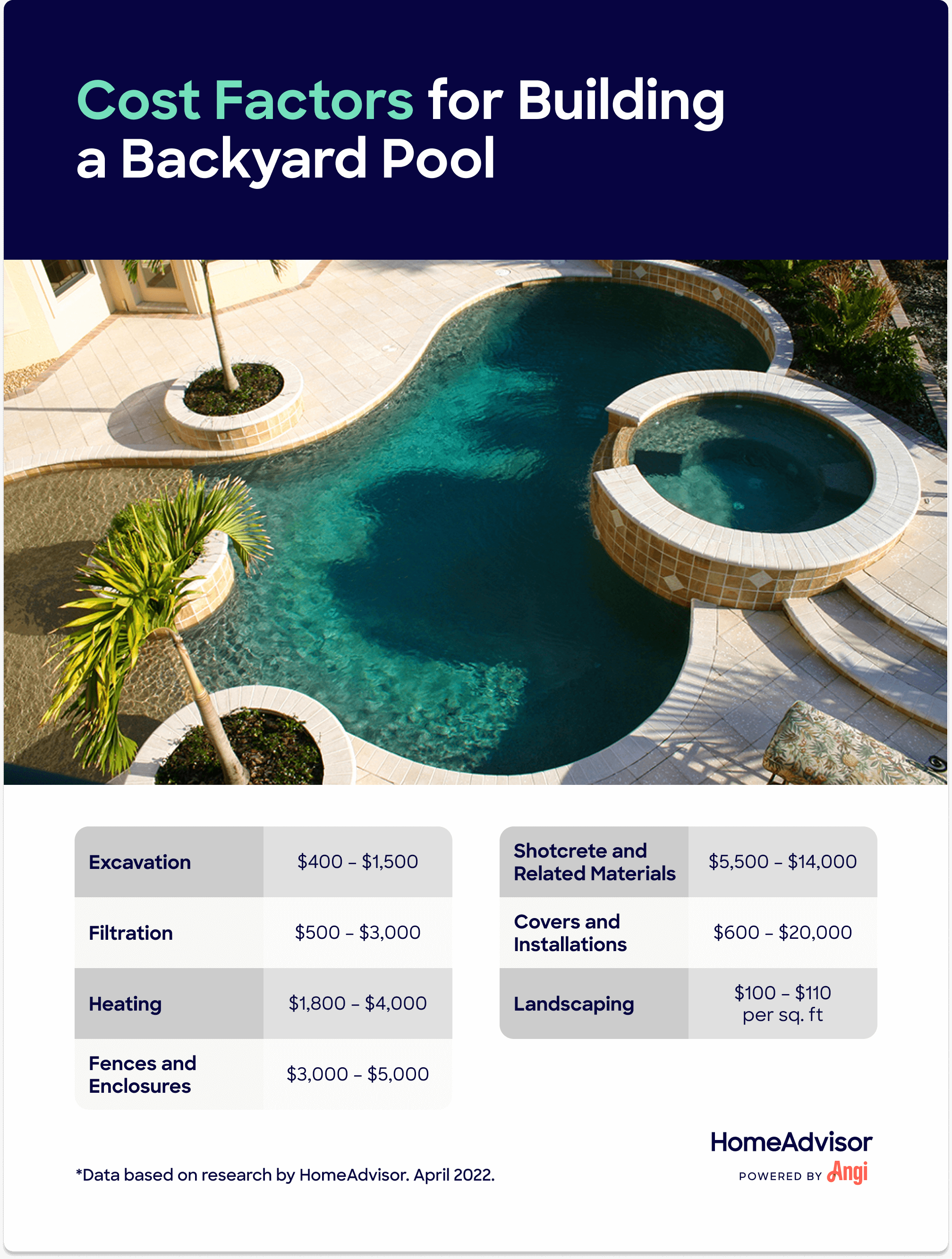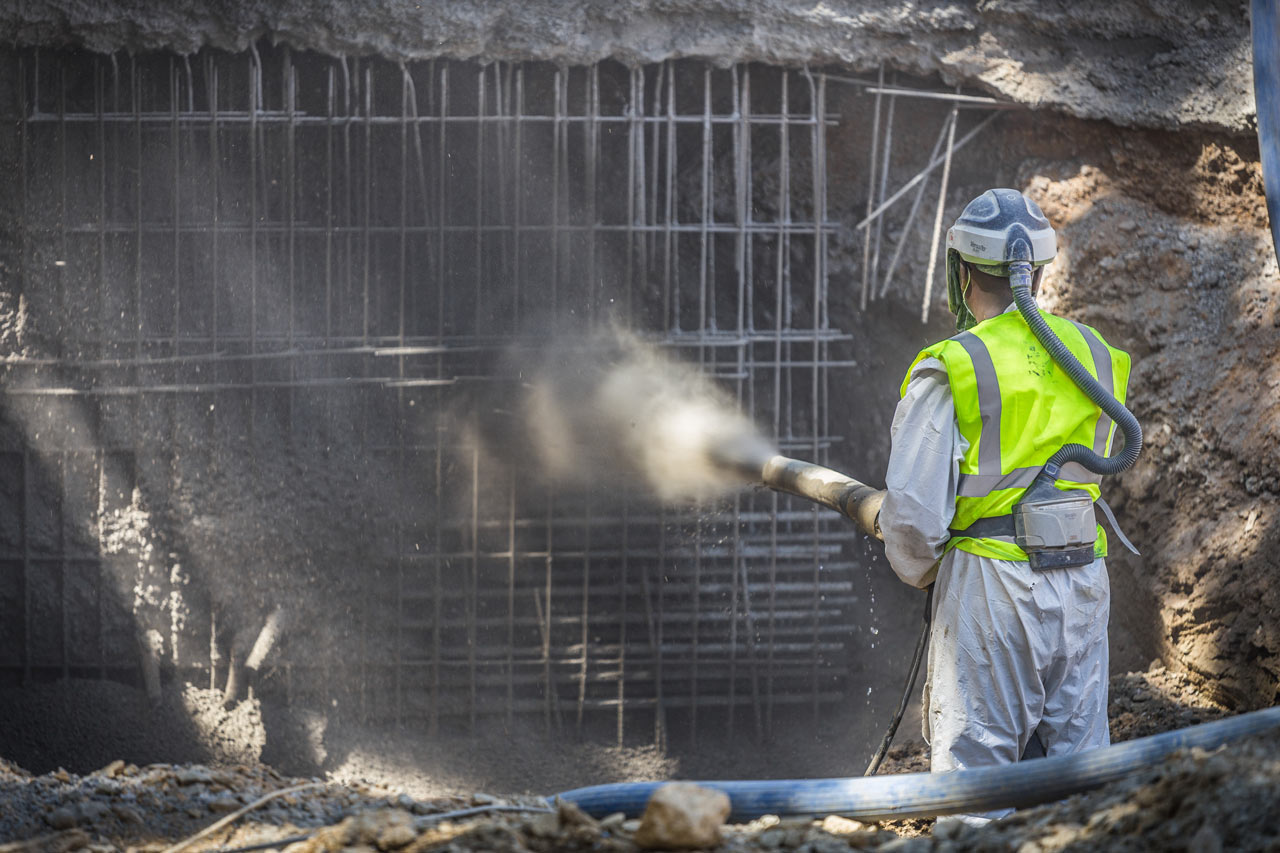How Much Does Shotcrete Cost?
Typical Range:
$125 - $175
Typical Range:
$125 - $175
Cost data is based on research by HomeAdvisor.
Updated April 18, 2024
Written by HomeAdvisor.Installing shotcrete requires specialized skills, major equipment, and careful project management, making hiring a professional crucial.
The shotcrete project costs vary, averaging $125 to $175 per yard, with extra costs for unique projects.
The cost of shotcrete depends on the project's size and location, complexity, type of shotcrete used, and labor costs.
Shotcrete, or gunite, is a popular material used for construction jobs like building pools.
Shotcrete installation benefits include ease of installation, life span, durability, and suitability for unique projects.
Highlights were summarized from this existing cost guide text using automation technology and were thoroughly reviewed for accuracy by HomeAdvisor Editor Ryan Noonan.
Shotcrete, occasionally called gunite, is a form of wet mix concrete that offers considerable durability, a long-lasting build, and an enhanced watertight seal over traditional concrete. That last feature makes it shine as the base for an in-ground pool, though it also works for other building projects, particularly those in out-of-the-way areas, as pouring shotcrete is easier than regular concrete.
Hiring a local concrete specialist to lay down shotcrete for a pool or a related project costs $125 to $175 per yard, including the delivery itself, shooting, forming, and curing.
Estimating the cost of shotcrete installation depends on a number of factors, including the amount of shotcrete needed, the project type, and the job's complexity.
The biggest cost factor here is the amount of shotcrete necessary for the project, at $125 to $175 per yard. This price includes delivery, on-site mixing (if necessary), spraying, curing, and setting. Job location also plays a role in setting the price, as remote areas cost more than easily accessible locations, as contractors run a hose from the truck to the job site.
As for job type, pools are the most common use for shotcrete, so nozzlemen and contractors have plenty of experience with this project. If you are buying and laying down shotcrete for a more unique project, such as a tunnel or underground encampment, you’ll pay extra depending on the difficulty. Contact a local structural engineer for a consultation before ordering the shotcrete for a unique project.
Like all concrete, shotcrete sets and cures before pros build anything on top of it or around it. In the case of a pool, the curing process bundles in with the overall project cost. However, for unique structures, this additional labor boosts the project estimate. After all, curing involves watering two to three times a day for seven to 10 days and related professional inspections to ensure proper bonding. Talk to your pro and ask if the structural design allows for DIY watering or if you’ll need an on-site technician.
Shotcrete comes in one of two types. The American Concrete Institute defines dry process shotcrete, sometimes called gunite, as shotcrete mixed with water in the nozzle directly before spraying. Wet process shotcrete, on the other hand, finds the shotcrete pre-mixed before hitting the spray nozzle. The main difference here regards when the contractor adds water. Though similar in efficacy, dry process shotcrete requires a dedicated nozzle-master to monitor the level of powder and compressed air during the spray, slightly increasing the cost by $5 to $10 per yard in some cases.
When it comes to standalone shotcrete spraying, you’ll pay $50 to $100 per hour for the service, or $40 to $80 per square yard of shotcrete. This represents 30% to 40% of the total project cost of $125 to $175 per square yard. Larger projects often include a discount, so talk to your pro.
Spraying shotcrete is a highly specialized process benefitting from an ACI-certified nozzle-master. For pools, this process is simply part of the total project cost, representing anywhere from 20% to 30% of the total price of building an in-ground model.
Certain style choices and additional features impact the overall cost of laying down shotcrete, such as obtaining necessary building permits and paying for an initial set-up fee.
This price ranges from $100 to $300, though local pool builders bundle up this set-up with the total project cost. You’ll also pay a 10% to 20% uptick for instituting a rush job, as laying down shotcrete is time-intensive and clearing up several days from a packed schedule is not easy for the modern contractor. Though easier to pour and form than traditional concrete, thanks to the spray-based delivery method, you’ll still pay for an initial set-up of the truck or trucks.
Of course, anyone building a pool knows that laying down shotcrete is only one part of a much larger puzzle. There is a reason, after all, why building a swimming pool costs anywhere from $18,000 to $47,000 on average. Shotcrete represents just 30% or so of the total cost of building a swimming pool, with the remaining money going toward excavation, plumbing, electrical services installation, laying down tiles, adding filtration, and even designing custom landscaping.
You’ll pay between $200 to $300 for standard building permits for above-ground pools, though unique structures, like tunnels, require a more advanced permit and inspection process. Your pro should get the ball rolling for you on this, and some wrap-in permit costs into total project costs, but be prepared for $1,000 or more for permits when using shotcrete for building something other than a swimming pool.
Installing shotcrete is highly specialized and time-consuming work, as even seasoned pros take several days to finish a project. You need access to massive amounts of shotcrete, various trucks, and the related industrial-grade hoses, nozzles, and related tools for proper disbursement. Many shotcrete-related projects occur in previously excavated areas beneath ground level, so improper spraying leads to property damage for you and your neighbors. In other words, this project is only for experienced pros. However, some curing processes, such as watering, are DIY-friendly.
Laying down, or spraying shotcrete is specialized work requiring a highly skilled contracting team. Start by checking various online databases to create a list of local candidates. Check to ensure they boast the appropriate licenses and insurance to do the work and look for any shotcrete or concrete-related certifications on their resume.
Search out potential red flags online via the Better Business Bureau’s company database and by reading customer reviews online. Finally, give them a call to discuss the job. Ask specific questions about their experience level and request any pertinent customer referral contact information.
If you are building a pool, have the square footage of your backyard ready to go and your desired swimming pool size and shape. For other shotcrete projects, have dimensions available and, if requested, blueprints or related architectural documents. You should also alert them to your budget limitations and your overall schedule, as laying down shotcrete takes multiple days (not accounting for curing.) Finally, discuss any necessary building permits, giving your pro the heads-up on how far along the permitting process you are. They could help.
Shotcrete is popular due to its ease of installation compared to traditional concrete and its overall lifespan and durability. However, shotcrete is significantly more expensive than regular concrete, even with the easier application process. Why is this? Shotcrete requires more specialized expertise, as jobs must finish quickly after beginning, or the material won’t bond. Also, overwatering during the curing process leads to shrinkage and cracks, so some contractors recommend against DIY watering.

